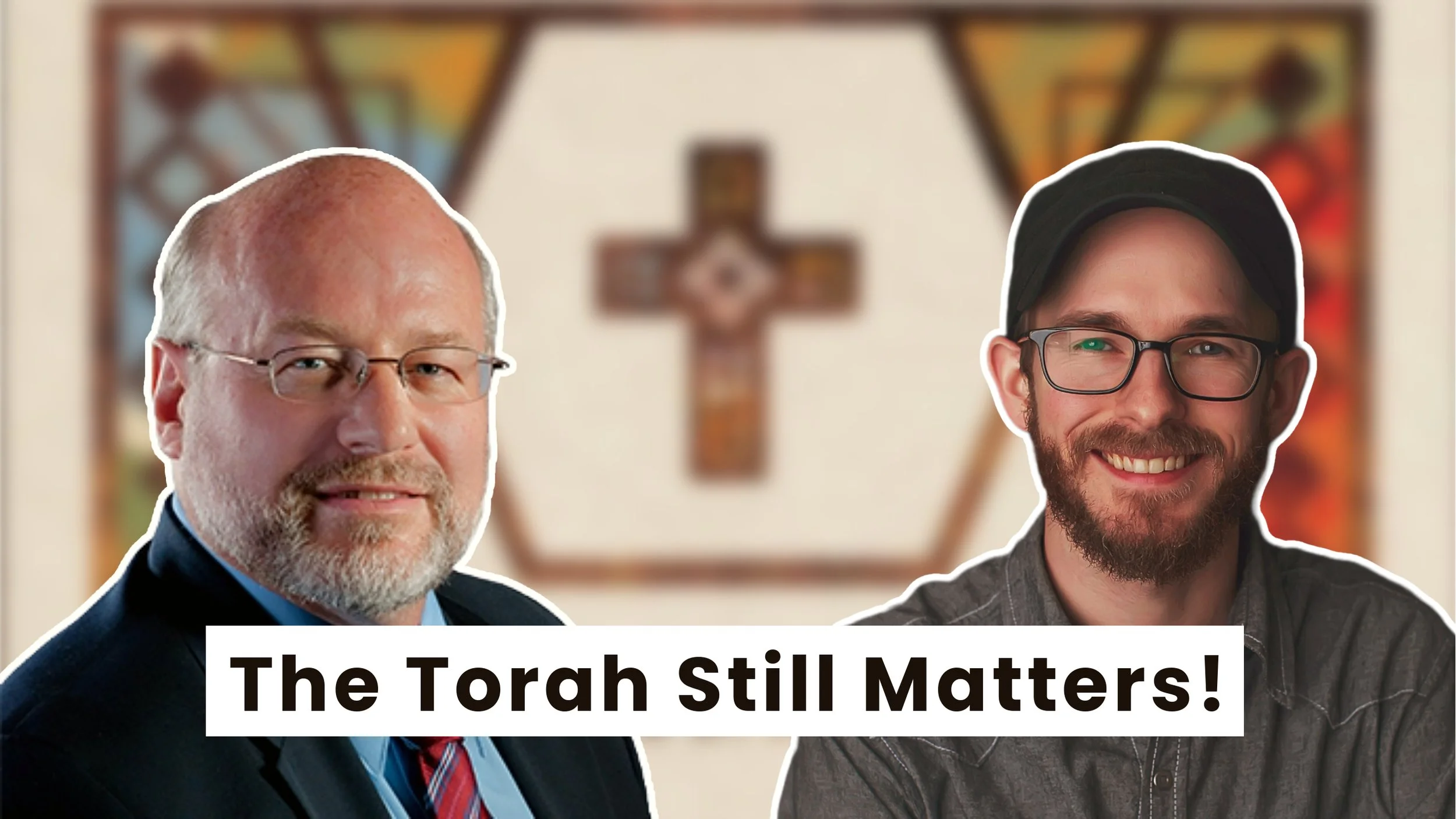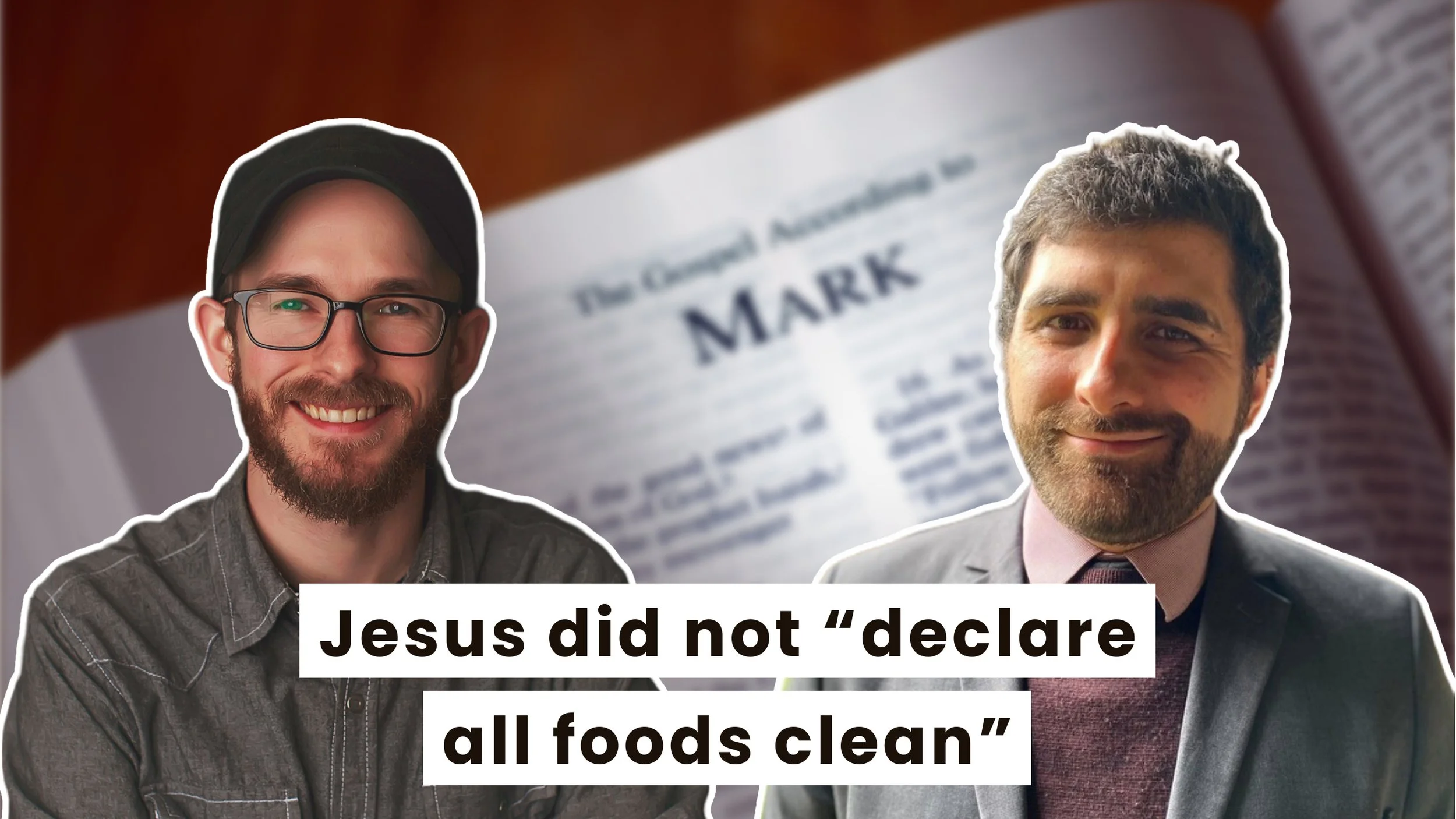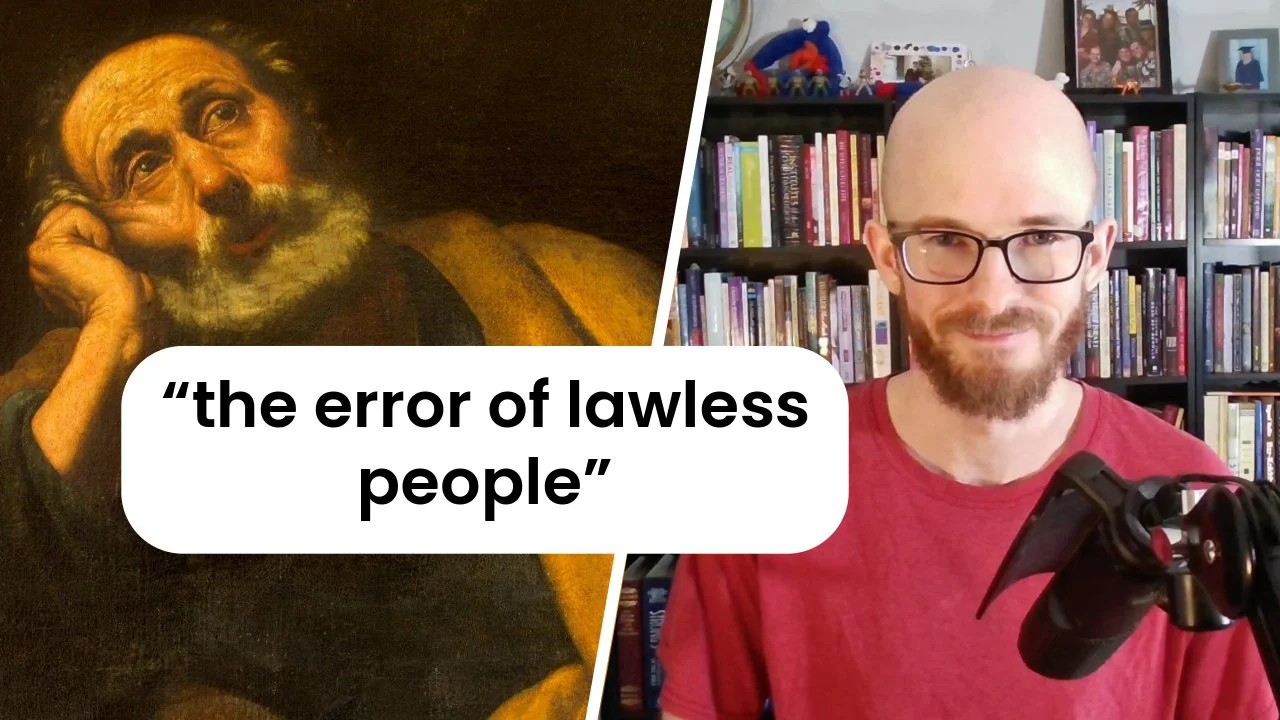Pronomian theology, or pronomianism, is a way of reading Scripture that affirms the ongoing authority of God’s Law given through Moses (Torah). In this video, we explore how pronomianism contrasts with antinomianism and how various Christian communities like Messianic Judaism and the Seventh Day Baptists approach the Torah today. If you’ve ever wondered about the relevance of commandments such as the Sabbath, festivals, and food laws in Christian ethics, this short video will give you a basic introduction to pronomian theology.
Understanding Hebrews: A Post-Supersessionist Approach (Interview w/ D. Thomas Lancaster)
Does the Epistle to the Hebrews teach supersessionism? Does the author suggest that the Messiah’s priesthood and sacrifice have replaced the Levitical Priesthood and animal sacrifices? Traditionally, many have argued yes, citing passages that mention a “change” in the law and that describe the first covenant as becoming obsolete. However, a growing number of scholars are challenging the supersessionist readings of those passages. My guest today, D. Thomas Lancaster, has recently authored a commentary arguing for a post-supersessionist approach to Hebrews. I’m excited to have him with us to explore this perspective on the Epistle to the Hebrews.
James, Paul, and the the Law of Moses in Acts 21:20-26 (Interview w/ Dr. G. Scott McKenzie)
Did the apostle Paul teach believers to abandon the Law of Moses? In Acts 21, we see a rumor circulating that he did, which prompts James to propose a plan for Paul to debunk this rumor and set the record straight. What does this passage reveal about Paul’s stance on the Law of Moses? My guest, Dr. G. Scott McKenzie, explores these questions in his recent book, “Walking Orderly, Keeping the Law.” In his book, Dr. McKenzie examines Acts 21 and critiques traditional antinomian interpretations that seek to deny its clear pronomian implications. I’m excited to have Dr. McKenzie with us to discuss his work, and I hope this interview blesses you.
The Old Testament Law for Christians (Interview w/ Dr. Richard Averbeck)
Is the Old Testament Law—the Torah—relevant to Christians today? My guest, Dr. Richard Averbeck, says that it is. In his recent book, The Old Testament Law for the Life of the Church, Dr. Averbeck makes the case that the Law of Moses remains in effect for Christians today. I’m excited to have him with us to discuss his book.
Did Jesus Invalidate the Torah’s Food Laws in Mark 7:1-23? (Interview w/ Dr. Logan Williams)
Did Jesus abolish the distinction between permitted (clean) and prohibited (unclean) food in the Torah? Many say that he did based on his interaction with the Pharisees in Mark 7:1-23. However, Dr. Logan Williams challenges this antinomian reading of Mark 7:1-23 and offers a more plausible interpretation.
Do Messianic Jews Preach a False Gospel?
A YouTuber recently condemned Messianic Jews and other Pronomian Christians, claiming they teach a "false Gospel" due to their belief in the continued validity of the Law of Moses. However, the implications of this YouTuber's antinomian theology ultimately result in condemning the Messiah and the apostles themselves.
Pro-Torah Scholarship and First-Century Meal Customs (Interview w/ Caleb Hegg)
Join me as I sit down with Caleb Hegg from TorahResource to discuss the important work TorahResource is doing to offer solid, pro-Torah scholarship for the Body of Messiah. We also explore the fascinating world of Greco-Roman meal customs and how this historical context can bring new understanding to New Testament passages about communal meals in the early church.
Peter's Warning About the Antinomians Who Twist Paul's Letters (2 Peter 3:15-17)
In 2 Peter 3:15-17, Peter warns that Paul’s letters contain content that is “hard to understand” and which “the ignorant and unstable” misinterpret. He then connects the mishandling of Paul’s letters to “lawless people.” In this video, I argue that 2 Peter 3:15-17 represents Peter’s warning regarding antinomians (individuals who reject God’s law) who misinterpret passages in Paul’s letters to advocate for lawlessness.





















